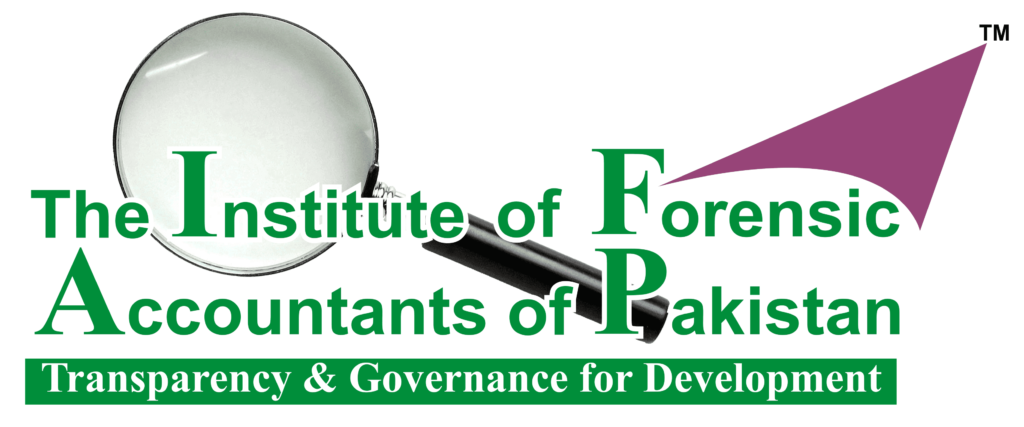SWOT Analysis of Forensic Accounting Education in Pakistan
Forensic accounting education in Pakistan is a critical component of the nation's efforts to combat financial fraud and promote transparency in its financial systems. To better understand the current state and potential prospects of forensic accounting education in Pakistan, a SWOT (Strengths, Weaknesses, Opportunities, and Threats) analysis is essential. This article provides an in-depth analysis of the SWOT factors that impact forensic accounting education in Pakistan.
Strengths
Growing Demand for Forensic Accounting: One of the strengths of forensic accounting education in Pakistan is the increasing demand for professionals with expertise in this field. As financial crimes and fraud cases rise, there is a growing need for individuals who can investigate and prevent such incidents. This demand creates a significant opportunity for educational institutions to offer specialized programs (Kranacher & Riley, 2023).
Government and Regulatory Support: The government of Pakistan has shown commitment to enhancing financial transparency and preventing fraud. This support is reflected in the inclusion of forensic accounting in regulatory frameworks. This alignment with government initiatives provides a strong foundation for the development of forensic accounting education in the country.
Collaboration with Professional Bodies: Collaboration with professional bodies, such as the Association of Chartered Certified Accountants (ACCA) and the Institute of Chartered Accountants of Pakistan (ICAP), allows educational institutions to align their curricula with industry standards. These collaborations ensure that students receive relevant and practical education.
Experienced Faculty: Some educational institutions in Pakistan like IFAP, have experienced faculty members who possess expertise in forensic accounting. These educators can provide valuable insights and mentorship to students, making the learning experience more effective.
Weaknesses
Lack of Awareness and Understanding: A significant weakness is the lack of awareness and understanding of forensic accounting among the general population. Many prospective students and their families are not aware of the potential career opportunities and societal benefits associated with forensic accounting. This lack of awareness can hinder the growth of forensic accounting education in Pakistan.
Limited Access to Resources: Limited access to resources, including specialized laboratories and forensic accounting software, can hinder the development and quality of forensic accounting programs. Many educational institutions struggle to provide the necessary tools and infrastructure for practical learning.
Challenges in Curriculum Development: Developing a comprehensive and up-to-date curriculum for forensic accounting is challenging. It requires a deep understanding of the evolving nature of financial crimes and forensic techniques. Keeping the curriculum current and relevant is a continuous effort.
Faculty Shortage: While some institutions have experienced faculty members, there is still a shortage of qualified educators in the field of forensic accounting. The shortage of faculty members with expertise in forensic accounting limits the number of programs that can be offered.
Opportunities
Expanding Career Opportunities: The growing demand for forensic accountants in Pakistan and internationally offers numerous career opportunities for graduates of forensic accounting programs. This demand is expected to increase as financial crimes continue to evolve.
Global Collaboration: Collaborating with international institutions and experts in forensic accounting can open doors to global best practices and partnerships. These collaborations can enhance the quality of education and research in forensic accounting.
Government Initiatives: Government initiatives to combat financial crimes and improve transparency can provide opportunities for forensic accounting education to become an integral part of the nation's strategy. Partnerships with government agencies can lead to funding and support for educational programs.
Threats
Competing Disciplines: Forensic accounting faces competition from other accounting and financial disciplines. Students may opt for more traditional accounting or finance programs, which are well-established and offer broader career options.
Budget Constraints: Budget constraints in educational institutions can limit the development and expansion of forensic accounting programs. Without adequate funding, institutions may struggle to provide the necessary resources and infrastructure.
Changing Legal and Regulatory Environment: Changes in the legal and regulatory environment can impact the demand for forensic accounting. If regulations become less stringent or if the legal system is slow to adapt to evolving financial crimes, the demand for forensic accounting professionals may decline.
Inadequate Recognition: The lack of recognition for forensic accounting as a distinct and essential field of study can pose a threat to the development of education in this area. The field may be undervalued, leading to limited investment and growth.
In conclusion, a SWOT analysis of forensic accounting education in Pakistan reveals a promising landscape with numerous strengths and opportunities. However, there are critical weaknesses and threats that need to be addressed for the field to thrive. To realize the full potential of forensic accounting education in Pakistan, it is essential to raise awareness, invest in resources, and adapt to the changing landscape of financial crimes and regulations.
Collaboration between educational institutions, government bodies, and professional organizations is crucial to overcome weaknesses and threats. By doing so, Pakistan can build a robust foundation for forensic accounting education, producing skilled professionals who can play a pivotal role in safeguarding the nation's financial integrity.
References:
Kranacher, M.-J., & Riley, R. (2023). Forensic Accounting and Fraud Examination (3rd ed.). Wiley.

Author:
Muhammad Ali
FICFA, FIPA, FFA, CCFA, FFA, FCIAP, MBA

